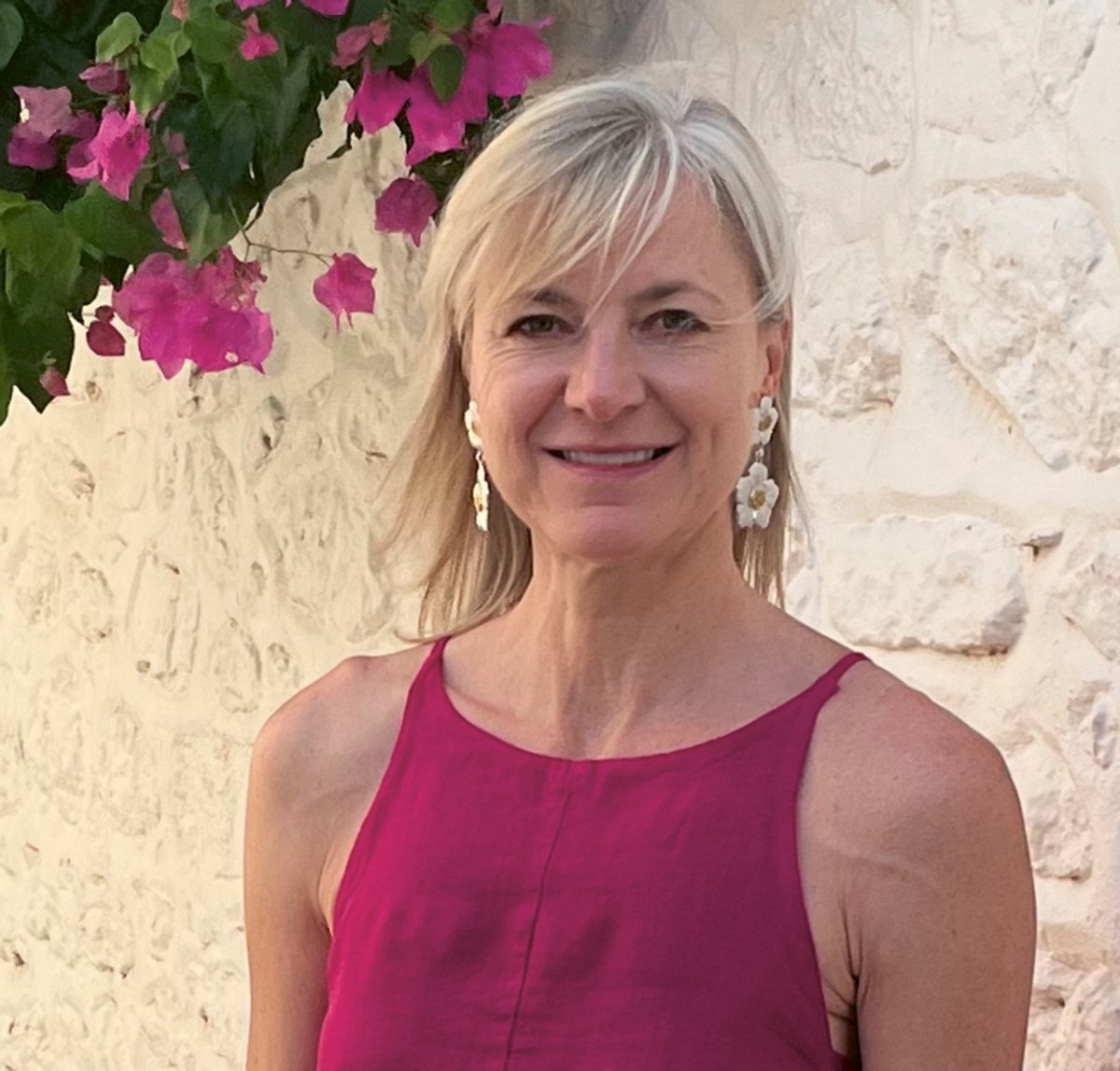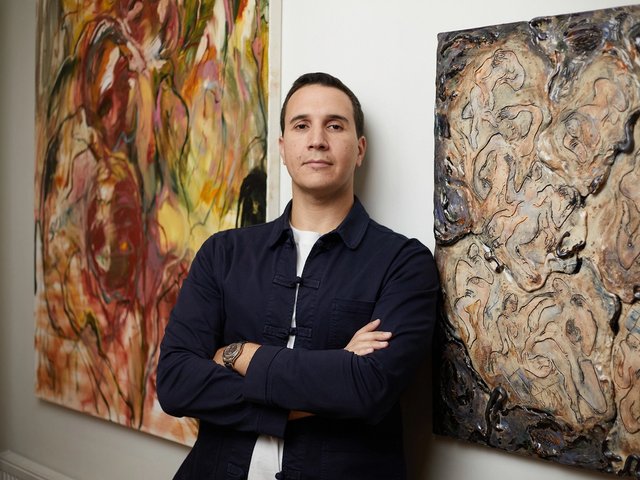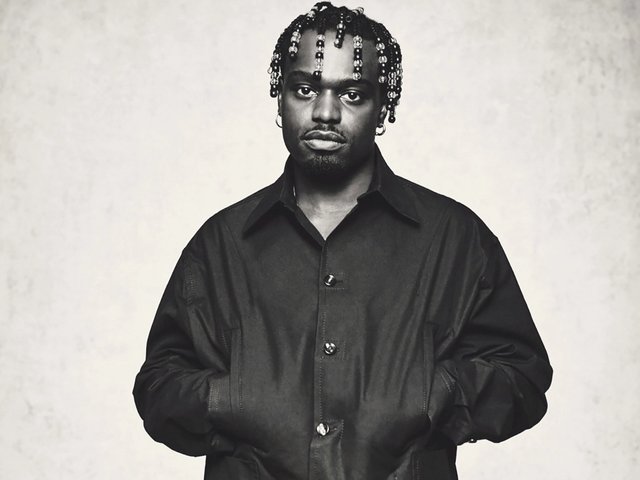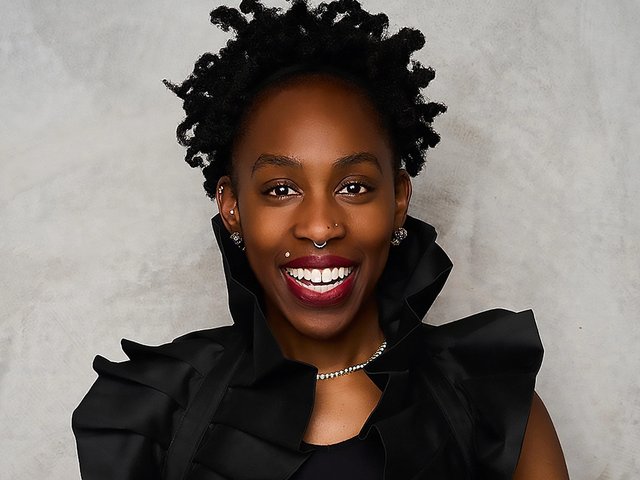The South Africa-born, London-based collector Liesl Fichardt has a thing for painting. Since starting to buy art as a university student, the international lawyer—currently a partner at Quinn Emanuel—has built up a considerable collection of works by painters including Chantal Joffe, Idris Khan and Sahara Longe. She also owns sculptures and tapestries by Yinka Shonibare and Billie Zangewa, among others.
Her involvement in the art world runs deeper, too. Among other things, she is a member of the Frieze acquisitions committee of the Contemporary Art Society, which supports one British institution every year in purchasing a work at Frieze London.
Fichardt has applied her legal knowledge to the industry, leading on Quinn Emanuel’s European art disputes practice and developing the London edition of the firm’s artist-in-residence programme (QE AIR), which will launch in early 2024.
The Art Newspaper: What was the first work you ever bought?
Liesl Fichardt: I think most collectors start with a work on paper, and my first major acquisition was a wonderful blue iris by William Kentridge. In those years Kentridge was still pretty unknown in most of the world, but he was quite an interesting artist in South Africa because his work was not always easy. It was quite political and I grew up in a very heavily politically loaded environment.
What was the last work you bought?
I think it’s a work by Sahara Longe. If you look at Sahara’s painting, it’s very minimal, very restrained, but the pigment is beautiful. I think that blue in the Kentridge iris was certainly the starting point of a long journey. I always tell gallerists that it’s the blue paintings that find me, but I have to connect with it, too.
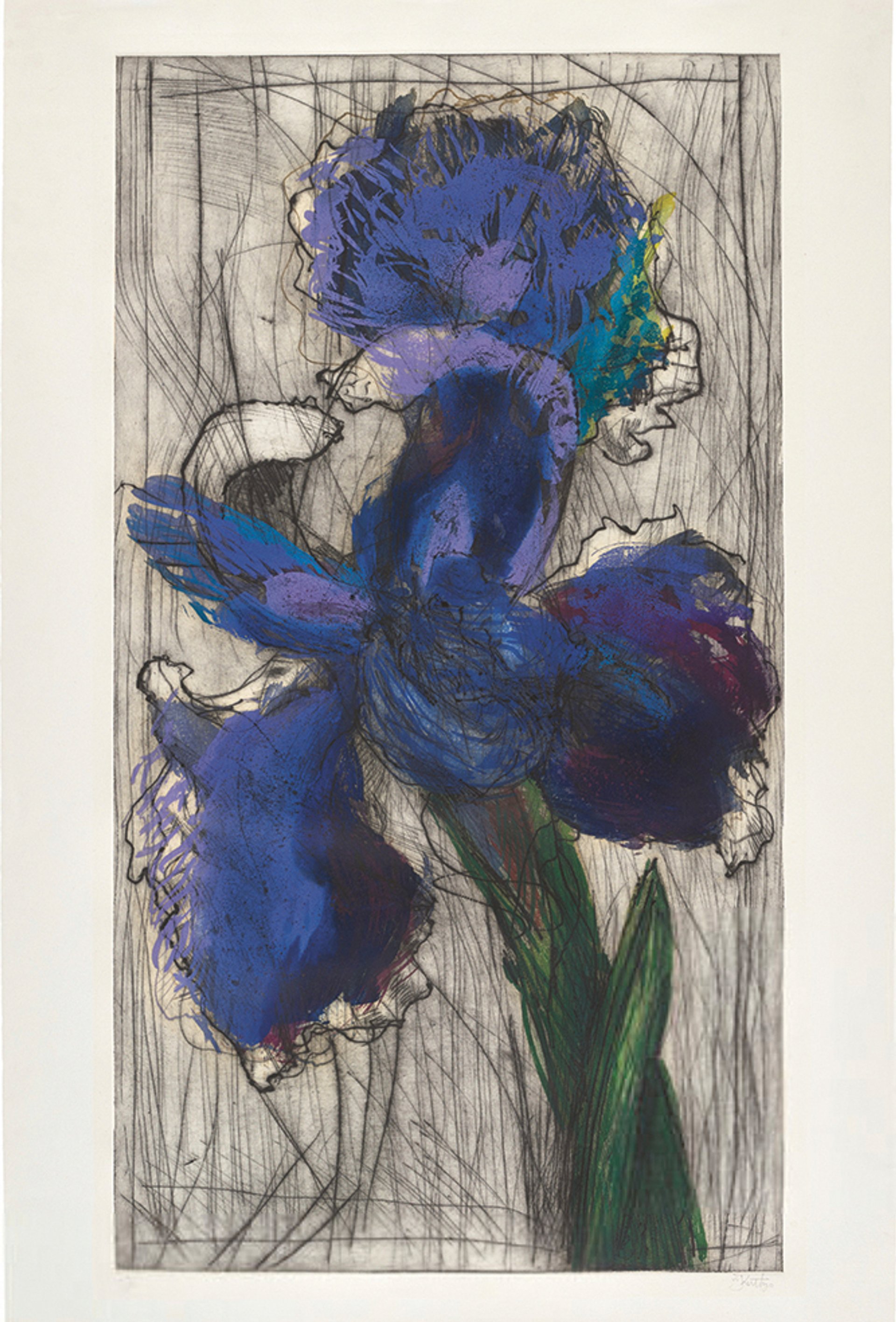
Fichardt’s collecting journey—and love of blue works—began with her acquisition of William Kentridge’s Dutch Iris (1996) Courtesy of the artist
What do you regret not buying when you had the chance?
One artist is Oscar Murillo. I saw his work many years ago. I loved it—for me, the bigger, the more abstract, the better. I tracked him and could never find the right piece. He then became quite important and I missed out because he became so expensive.
If you could have any work from any museum in the world, what would it be?
I would probably take every one of those Giacomettis at the Louisiana Museum. They have this incredible section where you walk down a passage and they are there. Sculpture is an area which I am starting to explore and those works stuck with me.
What are you looking out for at Frieze this year?
There’s one very interesting pattern that I see with galleries taking on artists just out of grad school or maybe one or two years into their careers. I think we are going to see a lot of really young artists, possibly a lot of work we’ve not seen previously, which is always exciting. One thing that was a bit frustrating at the last Art Basel was that there was, for me, a Yayoi Kusama overload and, I think, real Kusama fatigue. What I’m looking for is these younger voices. I’m looking for abstract voices, with a new take on the world and the political environment.
What tip would you give to someone visiting London for the first time?
The first tip is to plan your gallery visits, because if you want to go to Victoria Miro during Frieze, whether you take the tube or car it’s going to be a nightmare. If you want to get around in the evenings to some of the gallery shows or openings, in particular on the Tuesday pre-Frieze, it is chaotic.
Also, often people just focus on what is happening inside the tent at Frieze, but what they never look at is what goes on outside in Regent’s Park. There is a wonderful sculpture garden, so I’d suggest people make some time when they walk, perhaps, between Frieze and Frieze Masters.
Where do you like to eat and drink in London?
If you just really want to escape the hubbub there is this great new coffee shop in London called Hagen. There is one on a little square on Pimlico Road, halfway between Sloane Square station and Victoria. And on the Saturday, if you’re post-Frieze and want to go to a little organic market, pick up a nice pastry and have a really good coffee, that is your spot.


